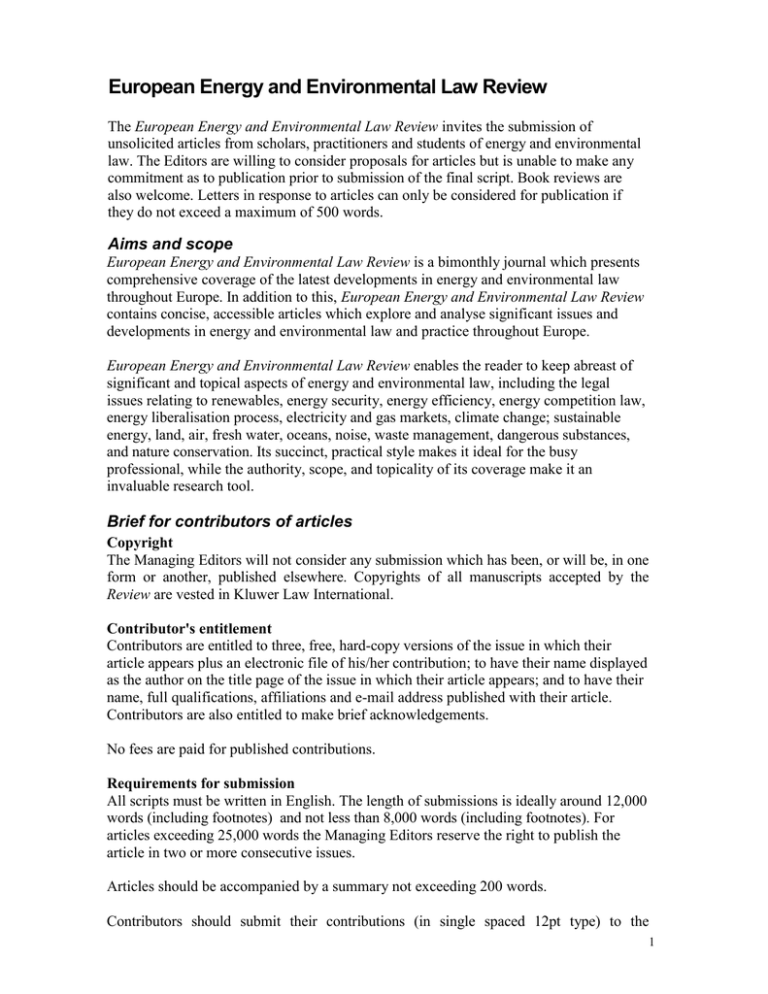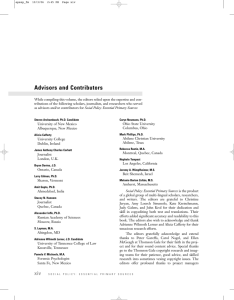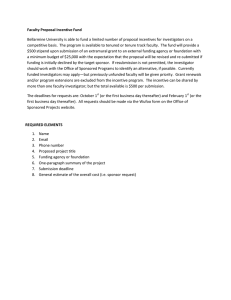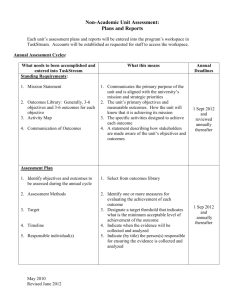submissions policy
advertisement

European Energy and Environmental Law Review The European Energy and Environmental Law Review invites the submission of unsolicited articles from scholars, practitioners and students of energy and environmental law. The Editors are willing to consider proposals for articles but is unable to make any commitment as to publication prior to submission of the final script. Book reviews are also welcome. Letters in response to articles can only be considered for publication if they do not exceed a maximum of 500 words. Aims and scope European Energy and Environmental Law Review is a bimonthly journal which presents comprehensive coverage of the latest developments in energy and environmental law throughout Europe. In addition to this, European Energy and Environmental Law Review contains concise, accessible articles which explore and analyse significant issues and developments in energy and environmental law and practice throughout Europe. European Energy and Environmental Law Review enables the reader to keep abreast of significant and topical aspects of energy and environmental law, including the legal issues relating to renewables, energy security, energy efficiency, energy competition law, energy liberalisation process, electricity and gas markets, climate change; sustainable energy, land, air, fresh water, oceans, noise, waste management, dangerous substances, and nature conservation. Its succinct, practical style makes it ideal for the busy professional, while the authority, scope, and topicality of its coverage make it an invaluable research tool. Brief for contributors of articles Copyright The Managing Editors will not consider any submission which has been, or will be, in one form or another, published elsewhere. Copyrights of all manuscripts accepted by the Review are vested in Kluwer Law International. Contributor's entitlement Contributors are entitled to three, free, hard-copy versions of the issue in which their article appears plus an electronic file of his/her contribution; to have their name displayed as the author on the title page of the issue in which their article appears; and to have their name, full qualifications, affiliations and e-mail address published with their article. Contributors are also entitled to make brief acknowledgements. No fees are paid for published contributions. Requirements for submission All scripts must be written in English. The length of submissions is ideally around 12,000 words (including footnotes) and not less than 8,000 words (including footnotes). For articles exceeding 25,000 words the Managing Editors reserve the right to publish the article in two or more consecutive issues. Articles should be accompanied by a summary not exceeding 200 words. Contributors should submit their contributions (in single spaced 12pt type) to the 1 Managing Editors by e-mail to EEELR@kluwerlaw.com. There is no need for hard copy. Within the body of the text only two levels of heading are permitted. Headings do not contain capital letters, except for the first word and proper nouns, and do not end in a full point. Paragraph numbers are not allowed. Cross-references within an article are discouraged. Delivery of footnoted text is preferred to text with endnotes. Footnotes should, generally, be confined to citation. All footnotes should finish with a full point. Any tabular material should be kept to a minimum and preferably placed at the end of the article. House style Contributors should note the following common points of style. If they are not used in the original script the Managing Editor will ensure that the script conforms. 1. General examples Numbers: One - nine (except for arts, regs, ss etc.); 10 - 999,999; one million; 1,000,001; 10 million Dates: 1 January 2002 Lengths: one metre; 10m; two kilometres; 100 km Area: one hectare; 10 ha Volume: one cubic metre; 10m3 Weights: one gram; lOg; two kilograms; 100 kg Latin: ultra vires; locus standi i.e. italicised unless abbreviated 2. Citation examples The first mention of a cite should be full. Thereafter it can be shortened. Directive: Decision: Regulation: Official Journal: Cases: Commission Directive 2002/123/EC on ... ; thereafter: Dir. 2002/123/EC Commission Decision 2002/123/EC of 1 January 2002 on ... ; thereafter: Decision 2002/123/EC Commission Regulation (EC) No 123/2002 of 1 January 2002 on ... ; thereafter: Reg. 123/2002 OJ 1.1.2001 L123/4 Case 244/80 Foglia [1981] ECR 3045 paragraph 61; thereafter Foglia ; or the Foglia case; or Case 244/80 R v Charles [2002] 1 All ER 123; thereafter R v Charles; or Charles; or the Charles case 2 Books: Articles: Author, Title ([edition no and] year), [volume no], [page no]; (square brackets indicate options; do not include an edition no for a first edition) e.g. B. DELVAUX, EELR House style (2 ed., 2002) p. 123; thereafter Author, p. 1; or Title, p. 2 Author, ‘Title’, [year], volume no (if any), periodical abbreviation, first page no e.g. B. DELVAUX, ‘EELR House Style’ [2002] EELR 12 at p. 34; Thereafter: Author at p. l; 3. Examples of abbreviations Article Art. (or art.) 1; Art. 1 (e) and (f) Articles Arts 2 and 3 et cetera etc. European Court of Justice ECJ For example spell out or 'e.g.' Number No Order Ord. Page PPages PPPart Pt Regulation Reg. 4 Regulations Regs 5 to 7 Rule r. 1 Rules rr. 1 and 2 Section s.8 Subsection subs. Sections ss 9, 10 and 12 - 14 Abbreviations and Arabic numerals are not used at the beginning of a sentence. Acronyms should be without full points and provided in brackets following the first use of the fully spelt out words - and used consistently thereafter e.g. "... genetically modified organisms (GMOs)... GMOs ... ". Attenuations such as 'don't' and 'aren't' are not acceptable. Capital letters are used for proper nouns; where there exists only one of the subject or object (so e.g. "the Court" but "the courts"); and descriptions of nationality/languages e.g. "a Finnish national citing the Greek translation of a French article in a London court". 4. Some correct usages of cross-references ibid. in the same place as cited immediately above op. cit. in the work quoted immediately above supra above on the same page infra below on the same page 3 As contributors will not know the pagination they should please avoid the use of 'supra! and 'infra!'. 5. Use of foreign languages Any word not commonly accepted into the English language, and particularly Latin phrases, should be italicised e.g. sui generis. Schedule Every effort is made to publish articles as promptly as possible. The Managing Editors will try to give an early indication of the cover month in which the article will appear. Contributors could be asked to check any changes or queries made by the Managing Editors. 4


